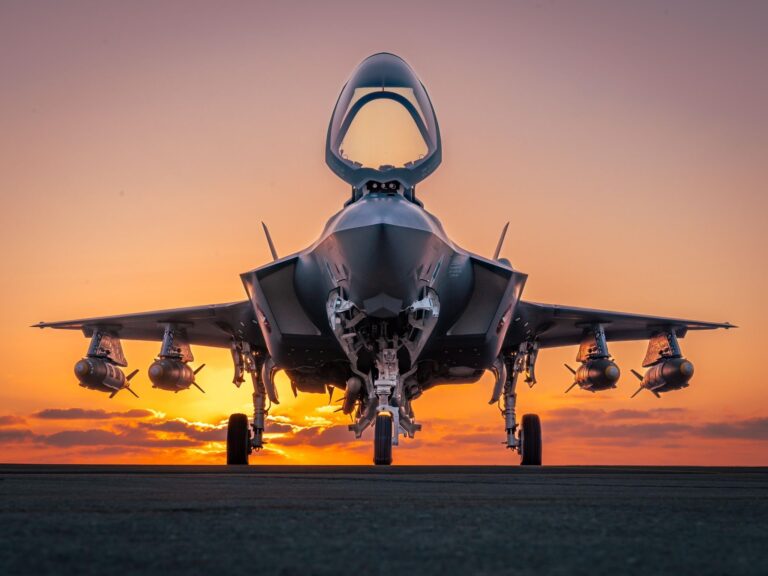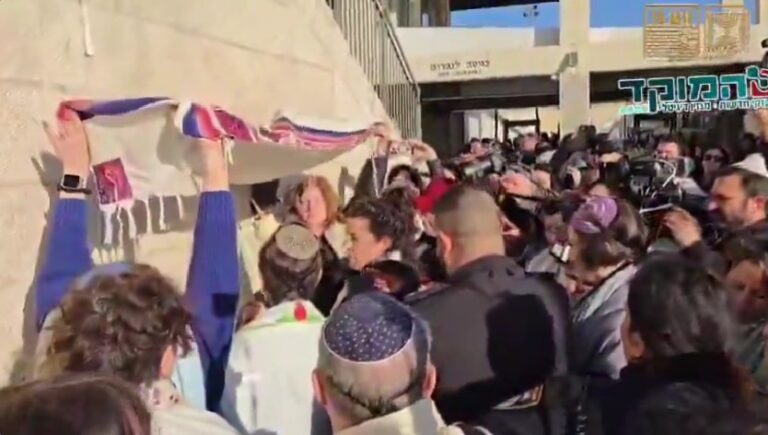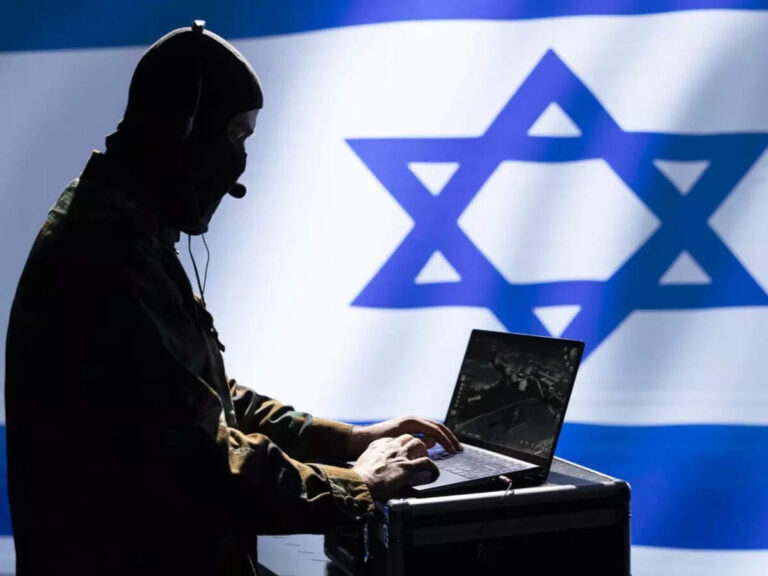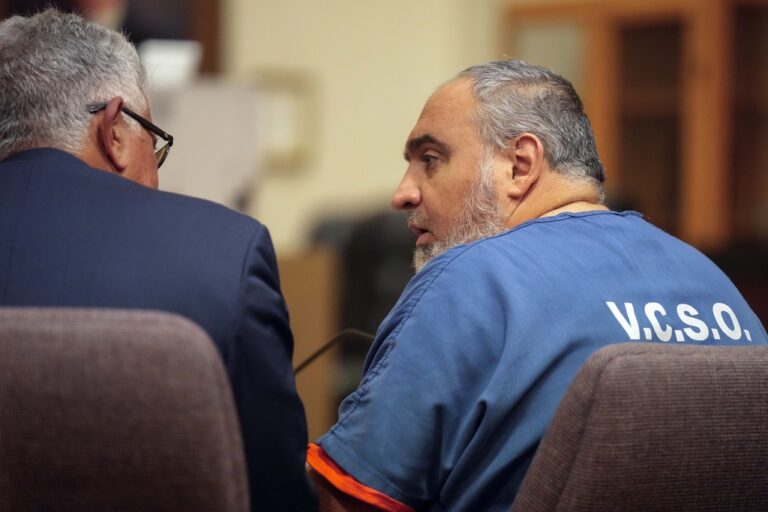A few months ago, my family and I traveled to Morocco for the hilulah of Rabbi Yitzchak Abuchatzeira on י״ד שבט. We flew with Iberia Airlines from JFK in New York to Madrid, Spain, and were scheduled to continue from there to Marrakesh. However, our connecting flight was unexpectedly canceled, and Iberia rebooked us on a different airline: Air Arabia Maroc.
When we boarded the new flight and took our seats, we quickly noticed that nearly everyone on the plane was Arab, and the airline was clearly an Arabic airline. Naturally, we were nervous. The situation was unfamiliar, and once the doors were closed, switching flights was no longer an option. We stayed on board, quietly davening and hoping b’ezrat Hashem we’d arrive safely.
Then something remarkable happened.
Before takeoff, the pilot spoke over the plane’s intercom for several minutes. As Moroccans, we understood Arabic, and were surprised to realize he was reciting an extended version of Tefilat HaDerech, thanking G-d for the miracle of air travel, asking Him to protect the passengers and crew, and to safeguard our families back home until we return to them in peace and health.
When we landed safely, I approached the pilot with my son and thanked him for reciting Tefilat HaDerech. His response left a deep impression on me. He thanked us for acknowledging it and said, “This is standard for me—and for our airline. Every pilot here says this prayer before every flight.”
We parted ways and headed into the terminal. But his words stayed with me.
And I couldn’t stop thinking: If an Arab airline—representing a religion we do not share—can publicly acknowledge G-d and ask for His protection before every flight, why can’t El Al do the same?
El Al is not just an airline. It represents the State of Israel, the Jewish people, and is often filled with religious passengers who themselves quietly recite Tefilas HaDerech as the plane begins to taxi. But why should it be silent? Why can’t a Jewish pilot—or a flight attendant, or even a recording—recite Tefilas HaDerech for everyone to hear, in Hebrew or in English, and ask Hashem for a safe journey?
We are a people of emunah. We are proud to be Jews. And in a time when other nations openly invoke G-d’s protection—even in commercial settings—shouldn’t we, as Jews flying on Israel’s national airline, do the same?
Signed,
D.A.
The views expressed in this letter are those of the author and do not necessarily represent those of YWN. Have an opinion you would like to share? Send it to us for review.












28 Responses
Or, we can appreciate all the great things elal has done to accommodate the frum passenger!
Oh come on man who cares?!
It’s a good idea but 1) who says they don’t in private just they don’t want their goyish customers to know that they’re religious
2 who says the pilots are religious?
Well, true that the owner of El Al today is Mr. Rosenberg-an orthodox jew- but the crew and passengers are not. Although many or most of them would have no problem with reciting Tfilas Haderech but the minor lefties will immediately boycott El Al and even file a lawsuit in that disgusting Israeli high court which will of course ban this practice due it to be “Religion Force”. Look how they act when the bochorim of chabad put on tfilion to pass byers in Tel Aviv that agree to put on tfilin “willingly”. No chance. If you desire Tfilas Haderech to be recited on board an aircraft continue travelling with Arab Airlines.
If elal would start reciting tefillas Haderech in hebrew-versus English-then
a)it would Chas VShalom cause a growth of antisemitism from those on the flight listening who are not supporters of Israel and their actually flying in and heading to Gaza after landing.
B)it would be sent big loss to Elal Airlines financially on all the customers that stop using them due to hearing it and not being jew or Israel supporters even though they just heard it on a elal flight and went to visit Israel temporarily.
Dear D A, I understand you might want to be as religious as our Arab cousins and perhaps you were even left with an inferiority complex, but it’s not so simple. First off not all poskim hold to say Tefilas haderech when flying. Secondly, you might get into issues of Kol Isha (according to some) if this were implemented.
Very simple answer
Most or all of the staff on the Israeli planes are very secular and hardly know much about Torah. In fact I met some who never heard of Esther but yet knew about Purim. I find them to be the most secular Israelis of Israel. Sometimes I get into a conversation with them and they bombard me with questions about Yiddishkeit. Maybe we should be mekarev them. Once I bought 16 decorative tehillim key chains as a present for all the staff. They were very moved and I got a chance to explain the beauty of Judaism.
I think they should also say a shehakol when the drink carts roll through the aisles. And maybe borei nefashos after that… Any other important suggestions?
Because El Al, like state institutions and the State of Israel itself, is a secular anti-religion anti-Judaism, organization.
Seems to me like this would cause all sorts of halachic issues. Reciting a bracha via a microphone to be motzi someone else is a sheilah. So many of those who would’ve said the bracha are going to get into a tangle uncertainties.
Another issue is the timing. If I’m not mistaken, the right time to say Tefilas HaDerech is mamash during takeoff; I doubt the crew could be counted on to do that. I’m not a flight safety expert, but my impression is that one of the most critical times, in terms of safety, is the first few minutes of the flight, so you definitely wouldn’t want to wait until the crew gets around to it.
After Tefilas HaDerech, you could take a moment to daven for the Jewish passengers (in fact, the non-Jews as well) who are not yet able to see that Hashem is keeping the plane up in the air, that He reach out to each and every one of them to help them gain an awareness of Him.
An significant amount of people flying on ElAl should have already said Tefilas Haderech on the way to the airport.
With all the problems in the world and especially the Jewish world, is this really a major problem? If you want to say Tefillas HaDerech…. say it. If NOT, don’t say it.
And when the commode is flushed should “asher yotzar” be played? C’mon.
FrumWhere, thanks for the laughs!!
There are poskim who hold that each traveller should recite his own Tefillas Haderech. As an aside, did the 9/11 terrorists recite a prayer for the wayfarer combo with viduy? I’m putting it out there for those who showcase “frumkeit” by the bnei Yishmoel, who desecrate the Holy Name when they yell it on their murderous sprees.
A very nice sentiment. To the naysayers, you may continue to say a private tefillat haderech. UJM will not be flying el al on his way to Tehran, so the point is moot for him. Heimish guy gets it, and we should emulate his love of klal Yisrael, and yiddishkeit.
the reason they dont is b/c if they said it whene the plane started taxiing half the plane would protest that they say it when the planes in the air😝
Far more important than tefilas haderech: On a long flight, why not announce zman kriyas Shema and tefilah? It can easily be missed as one travels across time zones! And on the entertainment system, offer the Daf Yomi!!
Because then it would be coerced and we believe in Bechirah Chofshit, as opposed to our cousins who believe in force and coercion.
It would not be as chashuv a mitzvah if it were read over the loudspeaker and you were forced to hear it.
Its not like camp, where its read for all as part of the camp’s chinuch
Elal is an Israeli airline, not a Jewish airline.
pakistani pilots sometimes sacrifice a goat to ensure the safety of their flight. i don’t think we need to emulate them either. prayer is a private matter, not a competitive sport.
The reason most likely is because most of the pilots are not religious, I’m sure if the pilots were frum they would be doing this. That being said, why does it matter to you that much? Do you feel guilty that it seems like the arabs are more “frum” than us? You do what is right in your own life and that should be good enough for you, why do feel challenged by religious arabs?
I see a lot of people making jokes about the very sincere and well meaning post. It’s true, many commentators pointed out several reasons why it might not be practical but we should all admire the good intentions of the op instead of making fun.
Wow, so much antagonism and mockery from a so called frum website!
@Rebbitzen Goldenpickanicerscreenname , I am not sure if you were being sarcastic, but for the benefit of those who read your comment and haven’t had the privilege of flying in ElAl recently, the entertainment system does have Daf Yomi shiur as well as a large selection of shiurim and Halacha videos etc.. on the “entertainment” system map, if you choose the flight map there is an icon that you can click that gives you all the upcoming zmanim for the flight. The zmanim are calculated real time based on where the plane is and the actual plane location and speed etc, so it is much more reliable than printing the flight zmanim chart that is based on assumed location.
Kindler: thanks for the shoutout, I think Mister Ploni’s laugh line is better!
Rabbi Cohen NJ needs to get a sense of humor, I wouldn’t be surprised if the op ultimately wrote it for laughs…
I smell a zionist!!
The state of “israel” is NOT jewish, or Israeli.
Just admit it.
This is nothing
Announcing zman kriyas Shema and tefila are no laughing matter! These are much more important than tefilas haderech. Seriously! Also, having a kosher option on the entertainment system like daf yomi (as an option alternative to the movies) is a serious suggestion!!